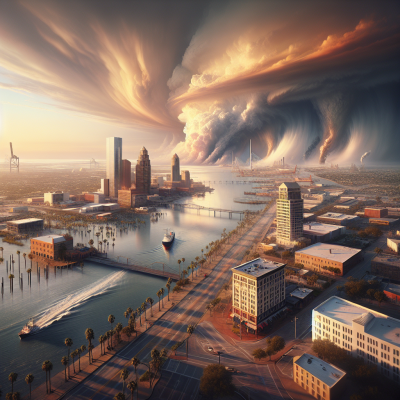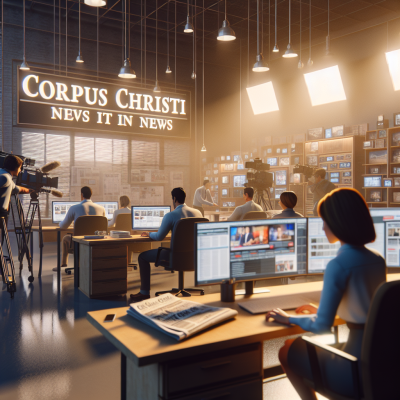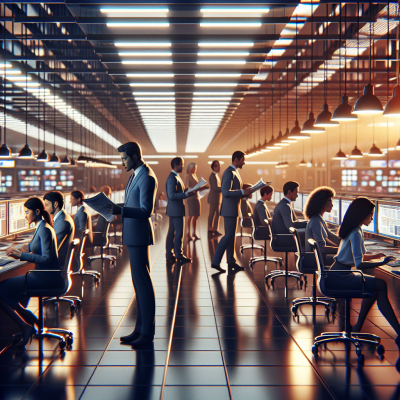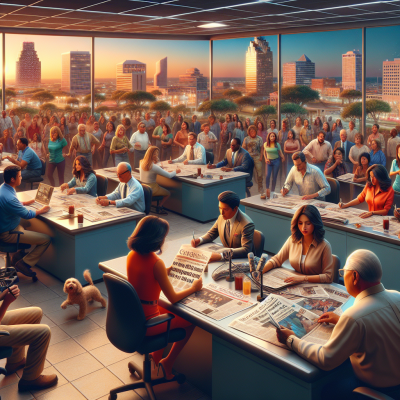
Key News Events in Corpus Christi’s History
Hurricane Celia and Its Aftermath
In the annals of Corpus Christi’s history, Hurricane Celia stands out as a formidable storm that reshaped the city’s landscape and left an indelible mark on its residents. Striking on August 3, 1970, Celia was a Category 3 hurricane with winds reaching up to 125 mph. The devastation was widespread, with homes, businesses, and vital infrastructure heavily damaged. Corpus Christi suffered significant economic losses, and reconstruction efforts took months, if not years, to restore the city to some semblance of normalcy. The aftermath of Hurricane Celia also highlighted the resilience of the Corpus Christi community, as neighbors came together to rebuild and support one another in the storm's aftermath. The disaster led to improved emergency preparedness and evacuation plans that have been instrumental in mitigating damage from future storms.
The Destruction Caused by Hurricane Harvey
Nearly five decades after Celia, Hurricane Harvey struck Texas in August 2017, leaving a trail of destruction in its wake. While Houston bore the brunt of the storm, Corpus Christi experienced significant impacts as well. As a Category 4 hurricane at landfall, Harvey brought intense winds and rain, causing widespread flooding, power outages, and damage to infrastructure. The hurricane highlighted the vulnerabilities of the region to natural disasters and underscored the ongoing need for robust disaster preparedness and infrastructure resilience. Recovery efforts were extensive and involved federal, state, and local emergency response teams, as well as countless volunteers. The response to Harvey demonstrated the strength and solidarity of the Corpus Christi community in times of crisis.
The Impact of Oil Spills in the Gulf of Mexico
The Gulf of Mexico has been central to Corpus Christi’s economy, but the region has also faced environmental challenges, particularly from oil spills. These spills have had far-reaching consequences, affecting marine life, the fishing industry, and the local economy. The 2010 Deepwater Horizon spill, one of the largest in history, severely impacted the Gulf Coast, with long-term ecological damage still being assessed today. Corpus Christi, reliant on tourism and fishing, faced challenges as oil contamination affected natural habitats and disrupted livelihoods. The event prompted stronger regulations and spotlighted the importance of environmental conservation and sustainable practices to prevent future disasters.
Socioeconomic Developments and Industrial Growth
Corpus Christi has experienced significant socioeconomic developments and industrial growth that have shaped its modern landscape. Historically a port city, Corpus Christi has expanded its reliance on the energy sector, with petroleum and petrochemical industries playing a pivotal role in its economy. Efforts to diversify have led to growth in tourism, aviation, and healthcare, contributing to economic resilience. The establishment of the Corpus Christi Ship Channel, enabling larger ships and increased cargo flow, further boosted the local economy. These developments have also brought challenges, such as balancing economic expansion with environmental stewardship and addressing socioeconomic inequalities. Nonetheless, Corpus Christi’s industrial growth continues to be a cornerstone of its economic identity, offering opportunities for innovation and development in various sectors.
Planning Your Trip to Corpus Christi?
How can we help you with your visit? Ask us anything: from restaurant recommendations to concerts happening this weekend, weather updates, and more.
We’re here to make your trip unforgettable!







